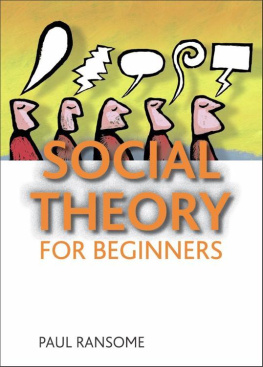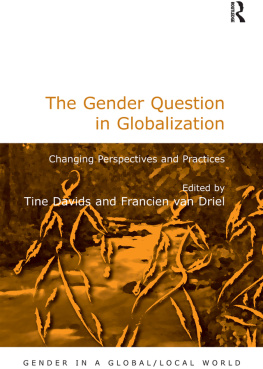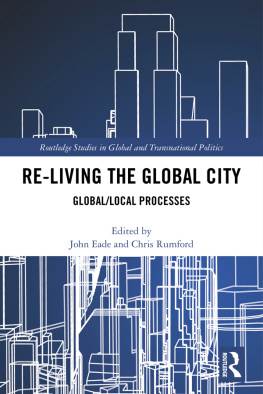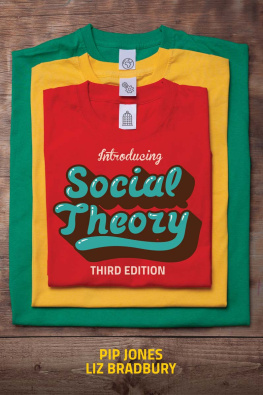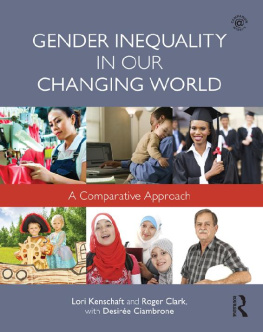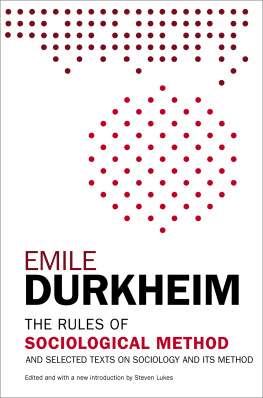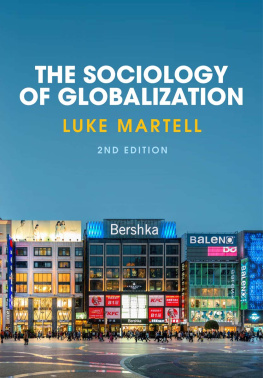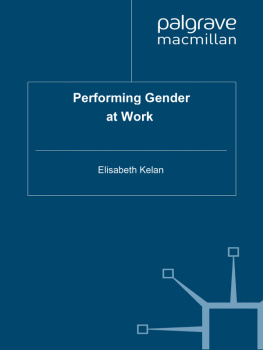SOCIOLOGY AND THE FUTURE OF WORK
For John Edward Ransome, 1927-1997
Although a very quiet man,
the silence he leaves behind is quite deafening
First published 1999 by Ashgate Publishing
Reissued 2018 by Routledge
2 Park Square, Milton Park, Abingdon, Oxon, 0X14 4RN
711 Third Avenue, New York, NY 10017, USA
Routledge is an imprint of the Taylor & Francis Group, an informa business
Copyright Paul Ransome 1999
All rights reserved. No part of this book may be reprinted or reproduced or utilised in any form or by any electronic, mechanical, or other means, now known or hereafter invented, including photocopying and recording, or in any information storage or retrieval system, without permission in writing from the publishers.
Notice:
Product or corporate names may be trademarks or registered trademarks, and are used only for identification and explanation without intent to infringe.
Publishers Note
The publisher has gone to great lengths to ensure the quality of this reprint but points out that some imperfections in the original copies may be apparent.
Disclaimer
The publisher has made every effort to trace copyright holders and welcomes correspondence from those they have been unable to contact.
A Library of Congress record exists under LC control number: 99073694
ISBN 13: 978-1-138-34562-1 (hbk)
ISBN 13: 978-1-138-34565-2 (pbk)
ISBN 13: 978-0-429-43777-9 (ebk)
The world of work is not what it used to be. One doesnt have to be Brain of Britain to recognize that once familiar assumptions about having a job for life, of developing a life-long career structure, or that work is a predominantly masculine activity are largely things of the past. The typical picture today is of a much more fragmentary and insecure pattern of employment. The message from Government spokespeople, careers advisers and employers is to develop a portfolio of flexible skills which will, if we are lucky, allow us to find a series of niches of employment. It is up to us to meet the challenge of the new world of work, to redouble our efforts to find new opportunities for rewarding and creative employment. We no longer simply have to be prepared to work whilst at work, but to work at anticipating where the next job, the next contract, the next challenge will come from.
The aim of this book is to lay bare a number of the key dimensions of change which are taking place in the present, and to use this as a basis for analysing what the key features of work in the future are likely to be. In developing this analysis, the book is organized around a critical examination of some of the leading discourses which are currently being deployed in debates about the future of work. Although this book will describe a number of the most likely underlying features of the future of work, it is also, and perhaps primarily concerned, with understanding which are the most useful ways of approaching the study of the future of work. It is as much a book about how to study the future of work from a sociological point of view, as it is an account of what that future will be like.
Inevitably, any book builds upon the ideas and research of its predecessors, and I would therefore like to acknowledge the work of all those authors referred to in the text. I would also like to acknowledge the support of colleagues teaching sociology and social theory in the School of Social Sciences and International Development at the University of Wales Swansea. My debt to Nickie Charles and Chris Harris is already large and continues to grow. The errors and omissions in the following are of course entirely my own responsibility.
A friend of mine commented that it should not take very long to write a book about the future of work. She wondered if perhaps it ought to be called is there a future of work? Despite the sarcasm of this comment there is a serious point here, since the answer depends a great deal on whose future of work one is talking about. As is often the case in looking at the social world we tend to assess things from our own vantage point. Thus, in asking questions about the future of work, our first response is likely to be framed in terms of our personal expectations of work. As sociologists however, we need to adopt a much more objective perspective, and to recognize that the future of work is actually made up of diversity of a views depending on which parts of the working population we are looking at.
Imagine for example, that we are standing in the High Street asking different kinds of people what they think the future of work will be. Our first respondents are an elderly retired couple. Ostensibly, our question might seem non-sensical to them as they themselves are no longer working. What they are concerned about is their pensions and the value of their savings. As long as the economic well-being of society remains constant, they can be reasonably confident about their future prospects. The prices they pay for basic utilities, food and clothing will not increase too rapidly, and the state will be able to continue to provide them with the medical and social services they need. Their perspective on the future of work is framed in terms of the overall economic position of the country. They are less concerned about precisely who is doing what kind of job, or with whether the practical content of this or that job has changed, than with a general hope that relative economic stability can be maintained.
The next person we speak to is a man in his mid forties. After spending much of his adult life working in a bank, he has recently lost his job as a consequence of restructuring. Where once he held a position of some responsibility, he now finds that the personal and organizational skills he had built up over the years are no longer needed by his employer. In looking around for another job, he finds that although valuable these qualifications and experience are no longer sufficient to guarantee him a job. He is a skilled professional man, but he is no longer employable on these grounds alone. His prospects of finding the kind of work he is used to doing are slim because restructuring has taken place across the whole of the industry in which he used to work. It is not that he himself has become a bad employee, but that the circumstances in which he is looking for work have changed. Besides, he knows that because he is by no means the only person in this position, he faces stiff competition from other former managers, and especially from those who are a few years younger than himself For him, the future of work seems bleak. At a minimum he faces the prospect either of having to take a quite different kind of job, perhaps one which bears little relation to what he did before, or of having to spend some time outside employment while he tries to acquire new skills. In either case, he knows he will have to revise his expectations of what the future holds and to look again at the standard of living and lifestyle which he and his family can afford. He feels demoralised and disillusioned by the fact that the expectations he had of work, expectations which he used to take for granted, can no longer be met.
Next we meet a woman in her late thirties who has just taken her children to school. Ironically, she has just started working part-time in the bank where our previous respondent used to work. The job she does is not terribly exciting, but she was able to pick up the necessary word-processing skills quite easily, and enjoys the company of her colleagues. Although she does not receive a large wage, this is off-set by the fact that her hours of work are flexible and convenient - she can work while the children are at school - and because being at work provides her with a break from the sometimes lonely routine of household life. She is pleased to have this opportunity for returning to work after a period away from it, and is quite confident that there is a continuing and perhaps growing demand amongst employers for women like herself. She knows that her employability is largely based on her availability, and on the employers perception of her as a reliable mature and responsible person. She does not feel that her future employment prospects are unduly threatened by younger people with more current qualifications. She also feels economically secure because her partner is working. If she should not be able to work for a while, they will still be able to pay the mortgage and household bills. They also have modest savings to tide them over in an emergency.


